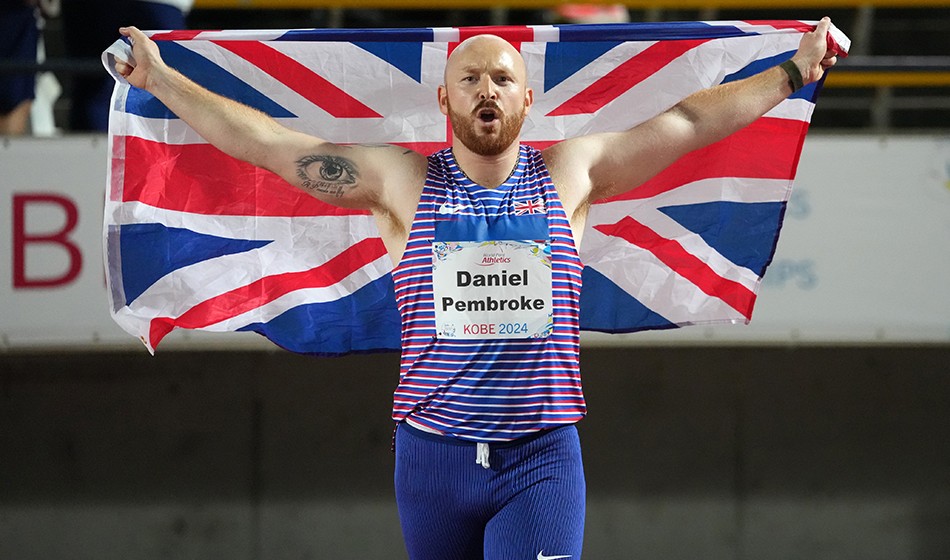As soon as the javelin left Dan Pembroke’s hand, he knew it was a big throw. Halfway through the Paralympic F13 final in Paris, the Briton had recorded a distance of 71.15m, breaking Uzbekistan’s Aleksandr Svechnikov’s seven-year-old world record by 14cm.
“I got my eyes on that sight line and just nailed it,” says Pembroke. “I celebrated proper early and I was like: ‘Yeah, I’ve won the gold medal and got that world record!’”
Within moments, however, the unconfined joy vanished and reality quickly set in. The 33-year-old, who had just established a huge lead of around 10m over the rest of the field, suddenly saw much of that gap disappear as Iran’s Ali Pirouj – his biggest competitor and the man who finished second behind him at the Tokyo Games in 2021 – threw 69.74m.
“That shut me up,” Pembroke admits. “I thought his next throw could put me in second place, but I’d trained for this scenario.”
Under the guidance of John Trower, the man who coached Steve Backley to three Olympic medals and a world record, nothing was left to chance. In the weeks building up to Paris, Pembroke and his mentor worked religiously on visualisation and how to respond to different scenarios.
Dan Pembroke (Getty)
“We had these sessions where, in my head, I’d go through every part of six throws [the number taken by each athlete in the final],” Pembroke explains. “That’s the preparation of putting your bag down in the stadium, looking around you and seeing your competitors, what you’re going to feel like on the first throw, reacting if it goes wrong and much more. All these things were implanted in my head at the Paralympics and it helped me so much in the Stade de France.”
The hard work well and truly paid off. With his next throw, Pembroke put the outcome well beyond doubt with a remarkable 74.49m. No one got close.
“This was the one,” he says. “I never thought it’d be 74.49m. It was the greatest moment of my life.”
Throwing the javelin that far was extra special because it matched the kind of marks Pembroke recorded as a junior, able-bodied, athlete. At the age of six, he was diagnosed with retinitis pigmentosa – a rare genetic disorder that causes eyesight to worsen over time – and was told two years later by his parents that he would eventually go blind.
“That was a big thing to say at that point but it was the best thing they could have ever done,” he says. “It taught me that I haven’t got a long time…
CLICK HERE to Read the Full Original Article at AW…

